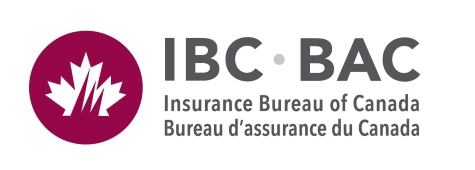HALIFAX, NS, March 31, 2021 /CNW/ - As the warmer weather arrives, snowmelt coupled with rain presents an increased risk of flooding in New Brunswick. Insurance Bureau of Canada (IBC) is informing consumers about how they can prepare for the coming flood season by protecting themselves and their property from water damage.
During a severe weather event, such as a flood, everyone's priority must be their personal safety, and the safety of their loved ones and neighbours. With the COVID-19 pandemic still a major factor across Canada, there is a greater need for individuals to plan ahead and be prepared.
Several insurers now offer residential overland flood insurance, which, along with sewer backup coverage, helps reduce the financial risk of flooding events. This product, as well as sewer backup coverage, is optional; it must be added to the home insurance policy at an additional cost.
"Twice in recent years, we have seen the devastating effects that flooding can have on communities in New Brunswick," said Graham Little, Government Relations Manager, IBC. "Warming temperatures, melting snow, ice jams and rain are all contributing factors to flood conditions. IBC is asking New Brunswickers in flood-prone areas to be on the alert and to stay safe. We want to help make sure New Brunswick residents are prepared and ready to deal with the potential damages."
Be prepared:
- Keep a current, detailed inventory of your home's contents.
- Assemble an emergency supply kit.
- Create a 72-hour emergency preparedness plan for you and/or your family.
Protect your property from water damage:
- Store valuable items on the upper floors of your home, not in the basement.
- Raise large appliances, electrical panels, the furnace and the hot water heater off the basement floor on wood or cement blocks. If that isn't possible, consider anchoring them and protecting them with a floodwall or shield.
- Anchor fuel tanks to the floor. A fuel tank can tip over or float in a flood, causing fuel to spill or catch fire. Make sure vents and fill-line openings are above flood levels. For propane tanks, contact the propane company and ask about the best storage methods.
- If flooding is imminent:
- Shut off electricity to the areas of the home that may be affected.
- Use sand bags, or install flood shields or built-up barriers to stop water from entering through basement windows and doors.
- Pay attention to information from local authorities and regularly monitor weather developments.
- Avoid roads that are immersed in water.
Visit the IBC website for more tips: Water Damage – Are you Protected?
If you need to make a claim, here's how to start the process:
- When safe to do so, assess, photograph and document the damage.
- Call your insurance representative and/or company to report the damage or losses.
- Be as detailed as possible when providing information to your insurance representative.
- Water damage to vehicles is usually covered under comprehensive or all-perils auto insurance policies. Contact your insurance representative for details.
- If you need help getting in touch with your insurer, contact IBC's Consumer Information Centre at 1-844-2ask-IBC (1-844-227-5422).
As New Brunswick continues to experience severe weather events, taxpayers and insurers share the cost for the damage. For every dollar paid in insurance claims for damaged homes and businesses, all levels of government and taxpayers pay out much more to repair public infrastructure damaged by severe weather. Yet Canada still lacks a national climate adaptation strategy with measurable targets and the accompanying investments needed to protect Canadian homes and businesses from natural disasters.
Canadians continue to experience accelerating financial losses from a changing climate. While acknowledging the importance of a resilient recovery, the federal government lacks any national plan to protect Canadians from floods, fires, windstorms and hail. For all of its laudable work on reducing future climate threats, the federal government is paying too little attention to the losses Canadians are facing today due to past inaction.
In 2020, the federal government created the Task Force on High-Risk Residential Flood Insurance and Strategic Relocation. Through this task force, insurers will work with governments across the country to better protect properties from flooding and to ensure that every Canadian has access to affordable flood insurance. Currently, this is a standalone effort. IBC believes it should be part of a larger coherent climate adaptation plan that includes expanded investments in the Disaster Mitigation and Adaptation Fund, flood mapping, as well as a commitment to include flood resilience in residential and municipal retrofit programming.
Visit IBC's website at ibc.ca for information on how to prepare for a disaster and on ways to prevent flood damage to your home.
About Insurance Bureau of Canada
Insurance Bureau of Canada (IBC) is the national industry association representing Canada's private home, auto and business insurers. Its member companies make up 90% of the property and casualty insurance market in Canada. For more than 50 years, IBC has worked with governments across the country to help make affordable home, auto and business insurance available for all Canadians. IBC champions key issues and helps educate consumers on how best to protect their homes, cars, businesses and properties.
For media releases and more information, visit IBC's Media Centre at www.ibc.ca. Follow us on Twitter @IBC_Atlantic or like us on Facebook. If you have a question about home, auto or business insurance, contact IBC's Consumer Information Centre at 1-844-2ask-IBC.
SOURCE Insurance Bureau of Canada

Media Contact: Vanessa Barrasa, Manager, Media Relations, 416-550-9062, [email protected]

Share this article